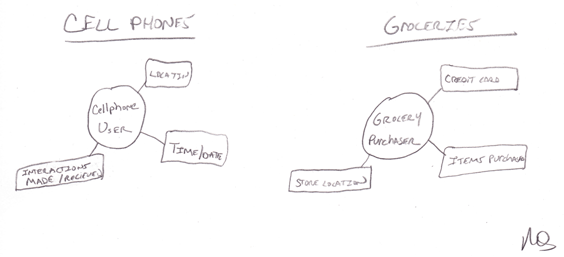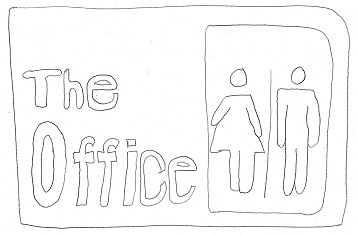With the dawn of social media and the ever present internet our worlds have actually gotten smaller. By smaller I mean our worlds have become so connected that it no longer takes weeks or months for a communication to leave the United States and reach a country on the other side of the world. With the advent of new and innovative technology we have been forced relinquish some level of control over our personal digital identity (a digital currency – privacy for access). How often did you read the paper “Terms of Service” or “User Agreement” before you had technology providing more complex agreements requiring compliance before you signed up for a service? Now if you would read these closely you would find confusing scripts of text that allow the company to record, interpret/edit and utilize much of your user data and personal works for their own purpose and gain. This has greatly increase how much of who we are is shared with the world and how easily others can identify us based on smaller and smaller sets of data. It comes down to being easier to gather large amounts of data and cross reference this to identify “anonymous” people.
In the article published “Unique in the Crowd: The privacy bounds of human mobility 1” researches showed how easily it is to uniquely identify people based on a dataset as a small as four points.
“in a dataset where the location of an individual is specified hourly, and with a spatial resolution equal to that given by the carrier’s antennas, four spatio-temporal points are enough to uniquely identify 95% of the individuals. 1”
“in other words, to extract the complete location information for a single person from an ‘anonymized’ data set of more than a million people, all you would need to do is place him or her within a couple of hundred yards of a cellphone transmitter, sometime over the course of an hour, four times in one year. A few Twitter posts would probably provide all the information you needed, if they contained specific information about the person’s whereabouts. 2”
Scared yet. I would say in the last 5 years we have seen the growth of two the largest aggregators of data the world has ever seen. Yes, I am referring to Google and Facebook and using a commonly quoted phrase from Stan Lee “with great power, comes great responsibility” can highlight our new found angst, displeasure or downright opposition to changes in the privacy statements and practices of companies.
NOTE: You can search and find countless articles of the uproar over the changes simply because it relates to what is shared with who for Facebook, Instagram, and others.
Consider this example of how MySpace was used as a conduit of seemingly innocuous information proved to be a security risk to the U.S. Government.
“The U.S. government isn’t the only institution to notice. Early in the military campaigns in Afghanistan and Iraq, soldiers of the social networking generation uploaded to their MySpace profiles pictures of camp life in the war zones. Innocuous photos of troops horsing around in front of tent cities, bunkers, outposts, motor pools, and operations centers circulated freely on what was then described as “a place for friends.”
The U.S. military soon realized that foreign intelligence services, sympathetic to America’s enemies and savvy to the social revolution, could collect these photographs by the thousands and build detailed, full-color maps of American military bases. During the Cold War, this would have required the insertion of first-rate spies, briefcases filled with cash, and elaborate blackmail schemes. In the age of radical transparency, all it would take is a MySpace account to know exactly where to fire the mortar round to inflict maximum damage on the United States. 3”
Why is all this important? Because moving forward one of the most valuable assets to a person will be their digital identity. Our digital identity shows the world who we are, what we stand for, our likes, dislikes, our family, archives our personal lives as they occur, serves as references for jobs, and variety of other societal measures. We must be vigilant in understand how our online or basic living activities (cell phone usage, internet browsing, online purchases, in-store purchases) can be tag, analyzed and synthesized so someone can build a digital file on who we are.


